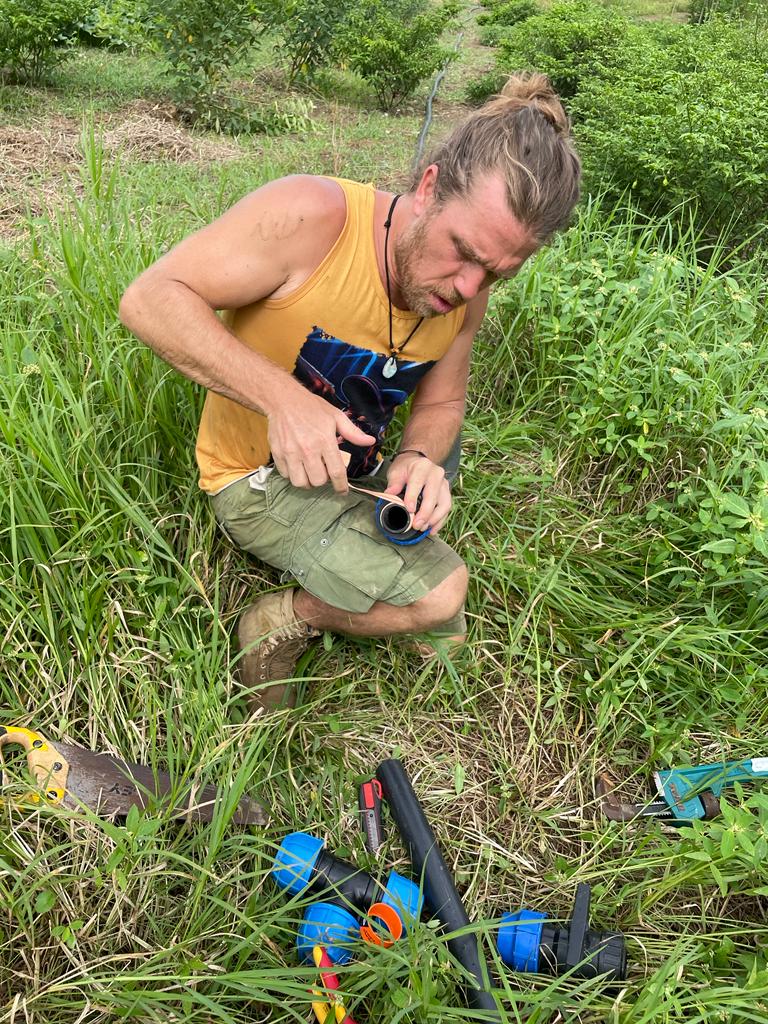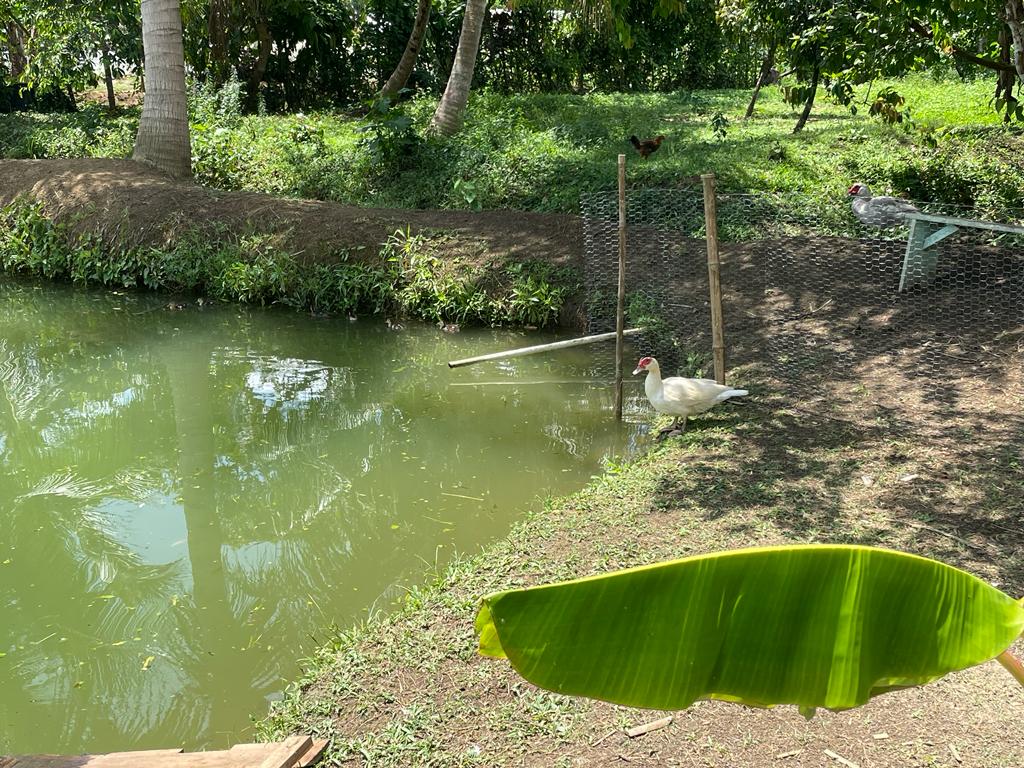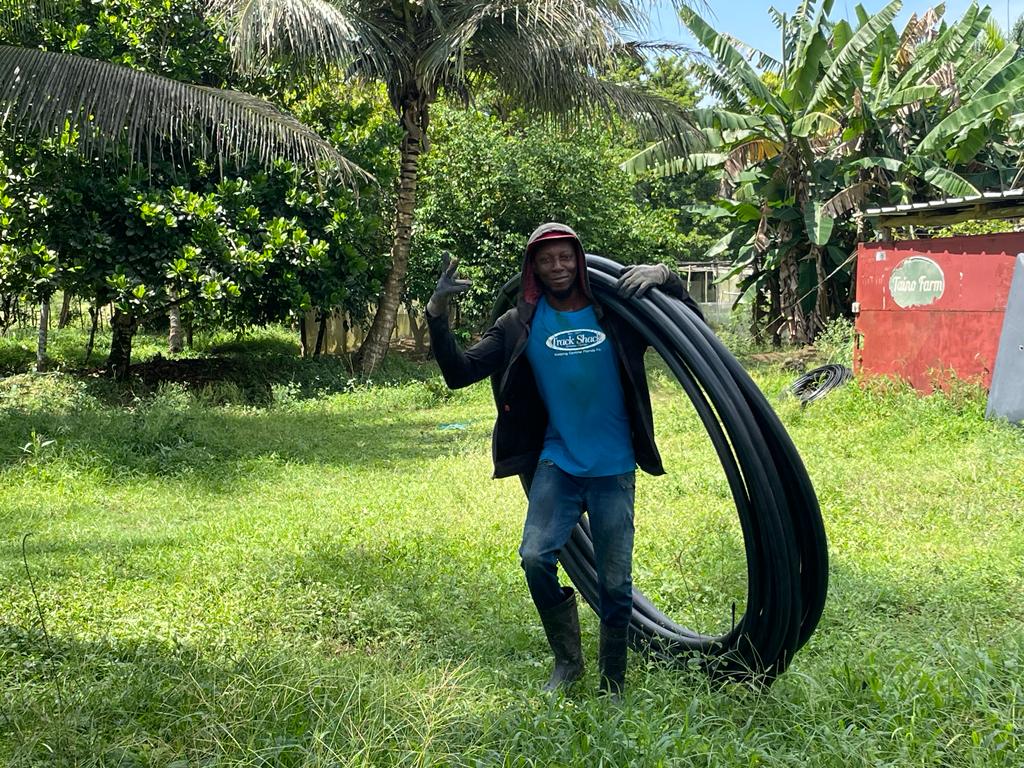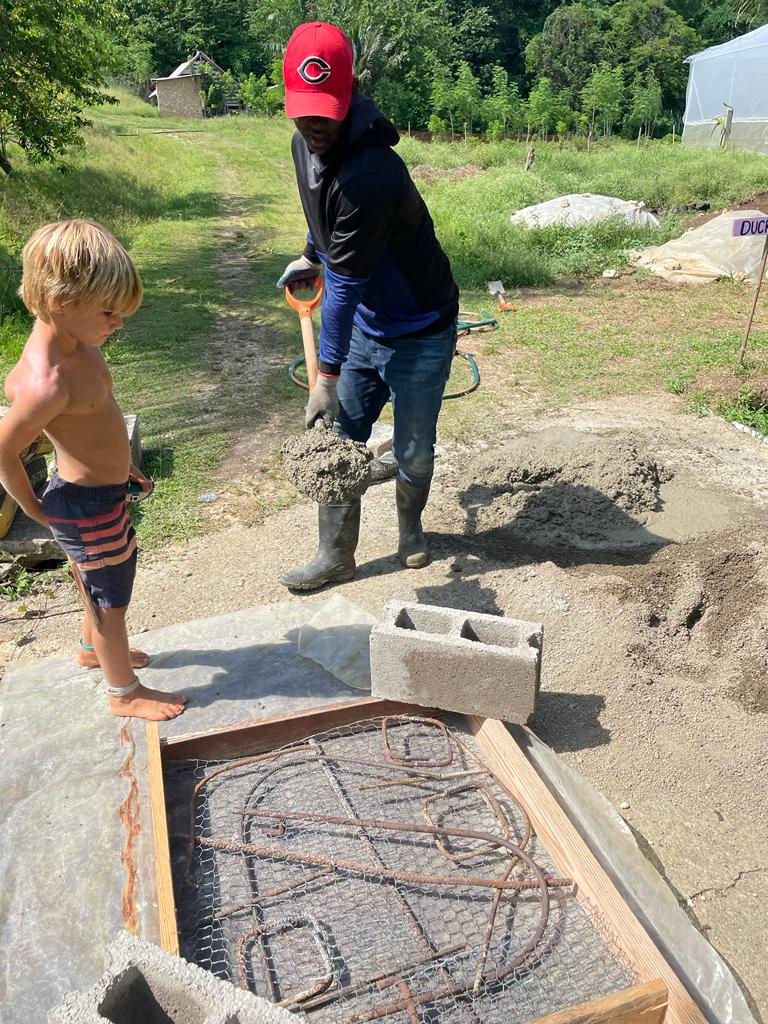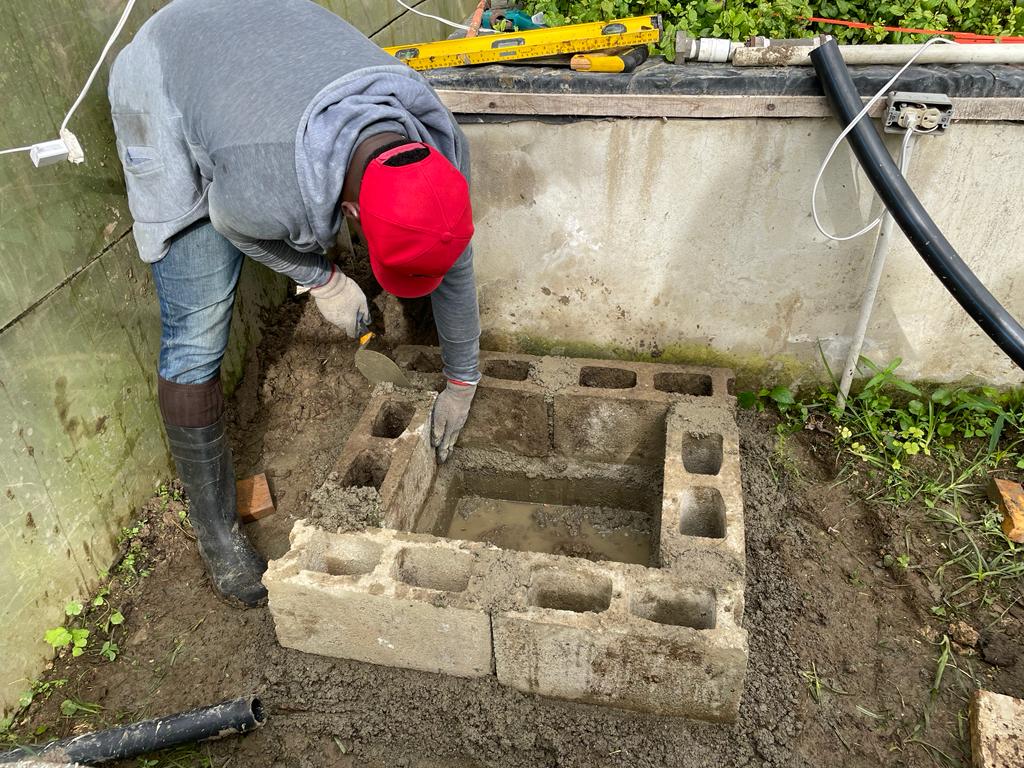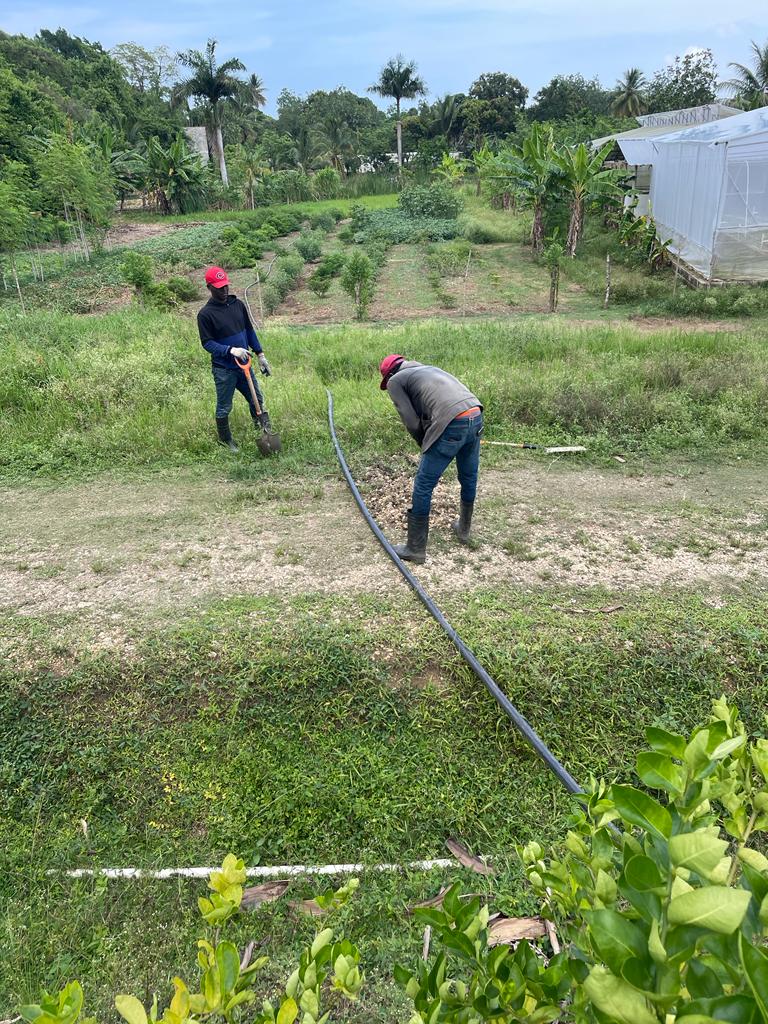“Hannes Schroder: The Engineer Behind Taino Farm’s Sustainable Revolution”
Meet Hannes Schroder, a 41-year-old engineer in
environmental energy who has played a vital role in transforming Taino Farm into a sustainable oasis. Having studied in Berlin, Hannes brought his expertise and passion for renewable energy to the project, becoming an integral part of the farm community two years ago. One of Hannes’ primary responsibilities on the farm is managing the technical aspects of the operation. From overseeing the garden beds to
handling water installations and solar energy systems, his work has been instrumental in optimizing the farm’s efficiency and sustainability.
During the dry season, the farm faced the challenge of manually providing water to
the plant beds, a time-consuming task that would take 2-3 hours per day.
Recognizing the need for an improved water supply, Hannes installed a water pump
to draw water from the lagoon. This water, rich in nutrients due to the fish waste
from a small aquaponic area, is then used to nourish the bed of greens and
vegetables, forming a closed-loop system that promotes resource reutilization.
Hannes designed a clever setup where the water pump transfers water from the farm’s lagoon into a pressure tank. From there, the water is distributed through a network of pipes that cater to the two gardens. This primary system allows individual control over water allocation, enabling each garden to receive the precise
amount of water it needs. Hannes incorporated both dripping water and sprinkler
methods to ensure optimal irrigation for each garden bed. Additionally, Hannes took charge of implementing a solar energy system on the farm. He constructed support structures for the solar panels and carefully set them up, even ensuring the roof was watertight. Thanks to his efforts, the farm now
generates 80% of its electricity independently, significantly reducing its reliance on
the electrical company, Edenorte. Although the system currently lacks batteries, the
farm plans to install them in the future to store excess energy for nighttime use,
ultimately achieving complete energy independence. In the lower garden, Hannes extended his technical expertise to establish a tree nursery. Similar to the water system, he utilized concrete and pipes to set up a water pump, with further electrical work pending completion. Hannes sourced most of the materials locally, primarily from the hardware shop in Sabaneta. However, for specific items like large black pipes, he had to travel to Moca, an agricultural town, and for the solar panels, he ventured to Santiago, the second-largest city on the island.
Hannes’s contributions have not only streamlined the farm’s operations but also freed up time for the farm employees to focus on other essential tasks. Furthermore, the energy savings achieved through the solar panels have the potential to significantly reduce the farm’s monthly electricity costs, which previously amounted to around $400. With ambitions to become fully independent within the next 1-2 years, the farm is on track to achieve its sustainability goals. Beyond his work on the farm, Hannes has an inspiring background. Alongside
Simon, he took ship on this adventure in the Dominican Republic in 2014. Initially drawn to the region for winter kite surf and surf trips, Hannes also worked in Haiti, where he learned Creole and collaborated with foundations to enhance medical infrastructure and electrical systems in hospitals and orphanages. Hannes Schroder’s passion for renewable energy and his dedication to creating sustainable systems have had a profound impact on Taino Farm as part of the family of owners that care for it when it changed ownership a few years ago. His technical knowledge and innovative thinking have transformed the way the farm operates,
making it more efficient, environmentally friendly, and economically sustainable. With his continued efforts, the farm is set to become a beacon of sustainable
agriculture in the region.
Adriana Badía Paulino

